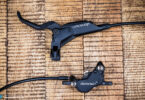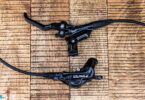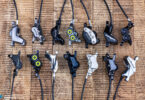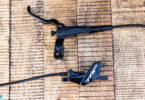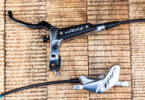The boys and girls at Acros are all about understatement, and they made no exception in the development of their first clipless pedals. Pragmatically named “clipless pedal” the Acros have a discreet black-on-black look. How do they fare against the competition with their SPD system and thoughtful details?
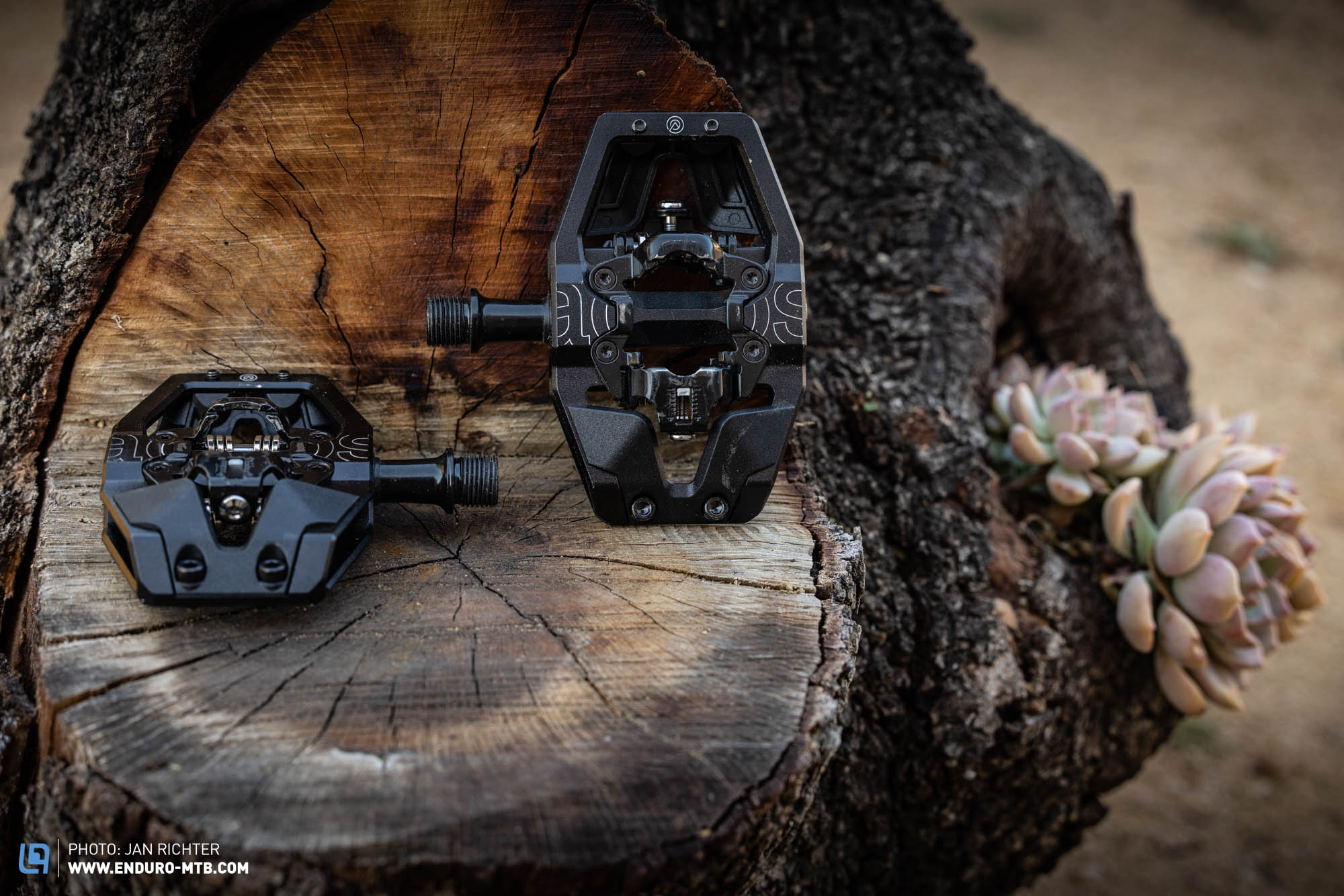
Release angle 52 mm / 57 mm |Q-factor 13° | Manufacturer’s website
Priced at € 119.95, the Acros clipless pedals are the most affordable option on test and are aimed primarily at newcomers to the scene. Their large cage makes them look rather burly, and you can feel it too, tipping the scales at 474 g for the pair. This makes them the heaviest pedals in the group. They rely on the tried-and-tested SPD clipless mechanism from Shimano that’s spring loaded on one side, so they share the same degree of float and the same release angle at 4° and 13°, respectively. You can also adjust the spring preload on the Acros clipless pedals. However, the plastic skid plates make the adjustment somewhat tricky. It’s difficult to get to the adjusting screw with a standard multi-tool and keep the head engaged while turning the screw. The real purpose of the skid plates is supposedly to make clicking in easier. The two pins per side screw from below, making them easy to replace in case they get damaged. Setting the Acros pedals apart is the fact that you can adjust the axle length. To do so, simply remove the axles and change the position of an internal sleeve. This allows you to adjust the q-factor between 52 mm and 57 mm, and thereby adapt the pedals to suit your preferred or required stance width.
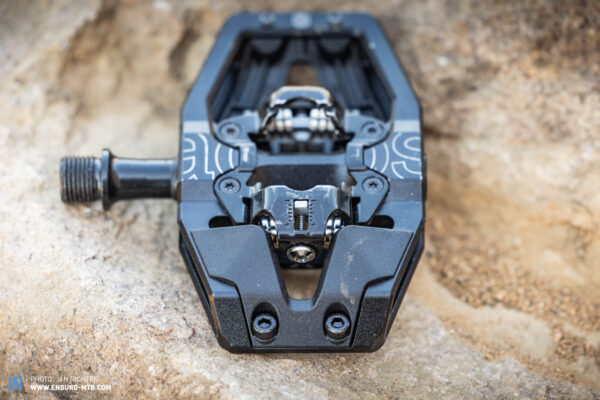
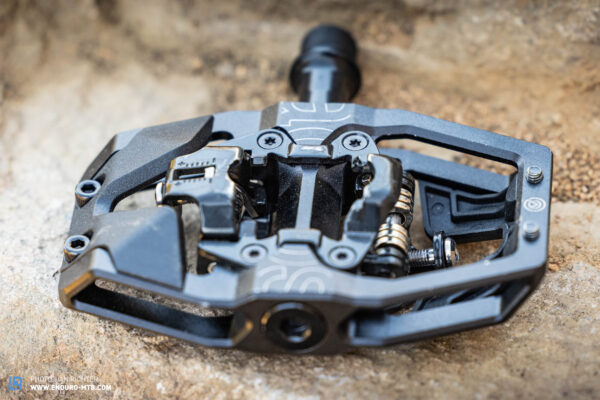
Acros clipless pedals on the trail
As with all SPD pedals, clicking into the Acros pedals is like clicking into a ski binding. You hook the cleat in at front and press your heel down into the spring-loaded click mechanism. Clicking in produces an audible click sound and you can feel that your shoes are securely attached to the pedals. However, the Acros models don’t feel quite as defined as the Shimano or Hope alternatives. Unfortunately, the plastic skid plates don’t help you click in – on the contrary, the ramp-like shape tends to make your shoe slide over the mechanism. You can eliminate the problem by removing the skid plates, but the mechanism just doesn’t feel as crisp as the Shimano original since it has a slightly different shape. Being able to set the stance width is a cool feature, but it isn’t something you’ll use often. Once you’ve found a stance width that you’re comfortable with, you won’t be changing back and forth. Besides, most cleats allow you to adjust the width by about 4 mm by shifting them inwards on your shoes. As such, adjusting the length of the axles is reserved for those who want something that will allow them to play around with the q-factor to a greater extent. The large cages and two front pins provide a secure footing, so you can easily ride a short distance without being clicked in. However, the large cages also provide less ground clearance. And when things get very wet, the clipless mechanisms will easily pack up with mud, which is typical of SPD type pedals. Thanks to the slightly more open design, however, the Acros pedals don’t pack up quite as easily as the Shimano XT models.
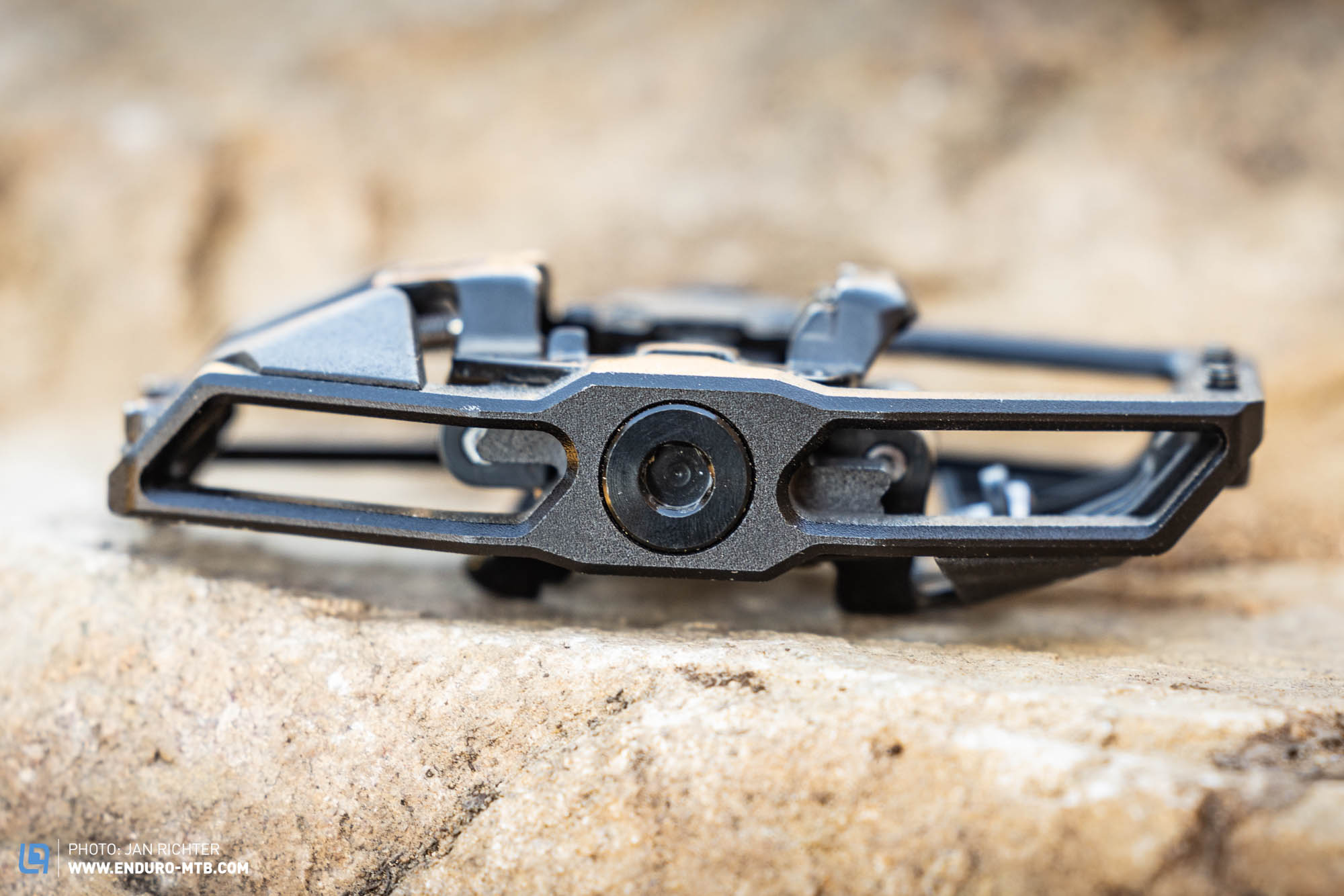
The Acros clipless pedals are an affordable option that boast a range of unique features. Unfortunately, however, these features didn’t add much on the trail, occasionally even being a hindrance. Due to their adjustable q-factor, the Acros pedals could be an interesting option for those who want to experiment with their stance width. To all those who don’t fall into this niche, we’d recommend paying € 15 more for the significantly better Shimano XT pedals.
Tops
- affordable
- variable q-factor
Flops
- hefty
- skid plates hinder more than help
- q-factor adjustment is seldom necessary
You can find out more about at acros-components.com
Click here for an overview: The best pedals for mountain bikers
all pedals in Review: Acros Clipless Pedal | Crankbrothers Mallet E LS | Hope Union | HT T2 | Shimano XT PD-M8120 | TIME SPECIALE 12 | Chromag Dagga | Crankbrothers Stamp 7 | Hope F22 | Look Trail Fusion | Nukeproof Horizon Pro Sam Hill | OneUp Composite Pedal | Race Face Atlas | Sixpack Kamikaze RA | SQ Lab 50X | Tatze Link Composite |
Did you enjoy this article? If so, we would be stoked if you decide to support us with a monthly contribution. By becoming a supporter of ENDURO, you will help secure a sustainable future for high-quality mountain bike journalism. Click here to learn more.
Words: Simon Kohler Photos: Jan Richter





